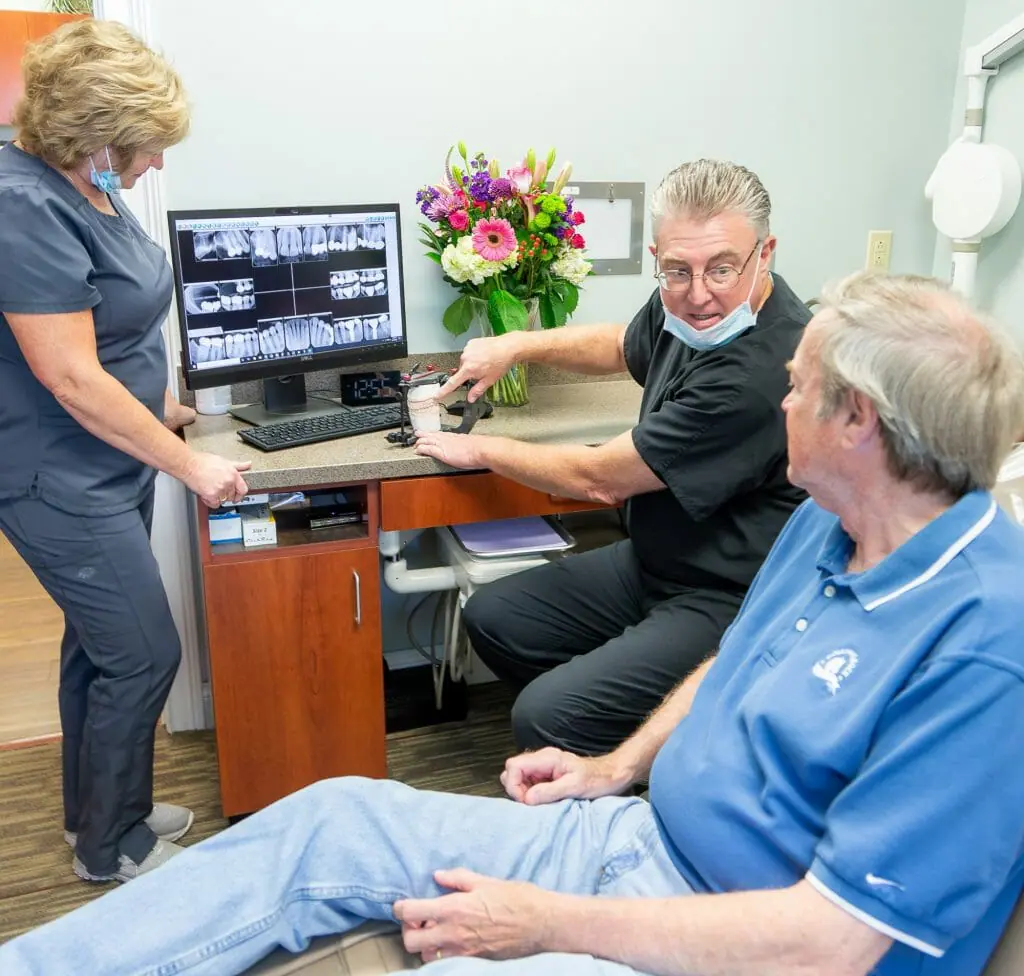Full & Partial Dentures
 If you are missing one, some, or all of your teeth, you have a variety of different tooth replacement options available to you. One of these options is dentures.
If you are missing one, some, or all of your teeth, you have a variety of different tooth replacement options available to you. One of these options is dentures.
Full Dentures:
We can replace your missing teeth with full dentures, also known as complete dentures. Most dentures are constructed from acrylic, and support the lips and cheeks from sinking in due to lack of teeth, giving your face a fuller and healthier look. The top (upper) denture completely covers the roof of the mouth while the lower denture is horseshoe-shaped so the tongue has room for speech and eating as well as greater comfort.
What are the types of full dentures I can get?
Conventional dentures - With conventional dentures, all of your teeth are removed. When the gums and tissues are completely healed, the denture is made.
Immediate dentures - all teeth are removed and the denture is immediately inserted. The tissues and gums will then heal under the new appliance.
Implant retained dentures - These are used for lower teeth to better hold denture in place. Implants are placed in the jaw bone and the denture snaps in place.
What are the “teeth” made of?
While the denture is most often made of acrylic, the teeth are either porcelain, plastic, or a mix of these materials.
Will I need to replace my dentures?
Your dentures may need to be replaced or relined over time as your gums recede due to the extraction of teeth. This is important for jaw alignment. Most dental insurance policies offer coverage for a new set every five years.
Partial Dentures:
These are removable and can replace as little as one tooth (or more). They look natural and feel comfortable. They are self-cleansing and protect and preserve the remaining natural teeth.
What are partial dentures made of?
Some are 100% acrylic and others are a metal and acrylic mix. The mix creates a stronger denture, plus they are thinner, therefore more comfortable.
Denture Care:
Taking proper care of your dentures is essential for keeping them clean and maintaining good oral health. It is important to brush your mouth every day to keep your tongue, cheeks, and gum tissue healthy. You should also clean your appliances with denture cream and let them soak overnight. Rinse thoroughly after eating with cold water. If your dentures feel loose or uncomfortable, come see us right away, as they may need to be adjusted. When they are out of your mouth for an extended period of time, keep your dentures covered in water or a special denture solution so they don’t dry out and become brittle. Lastly, it is important to inspect your dentures regularly for anything that looks loose, damaged, or stained.
